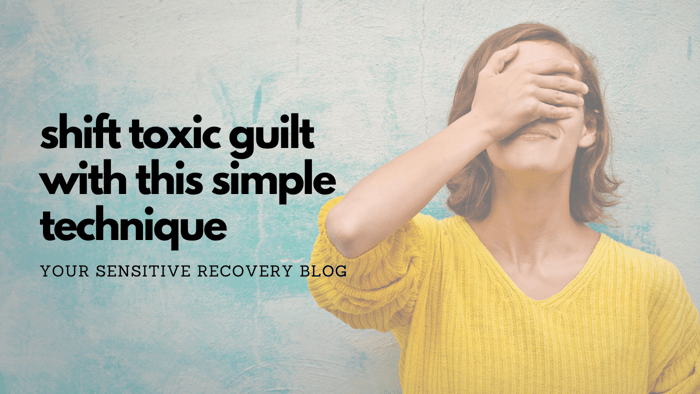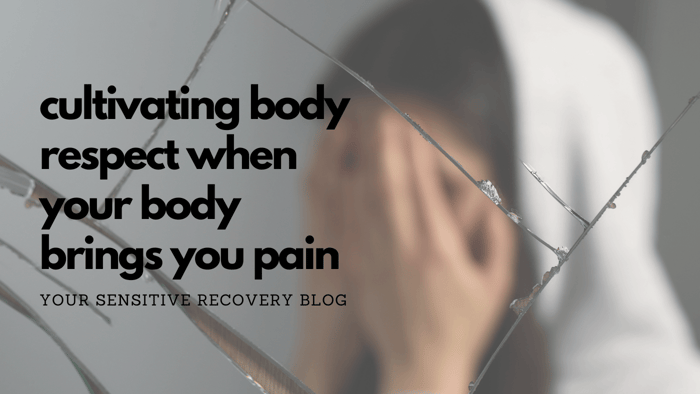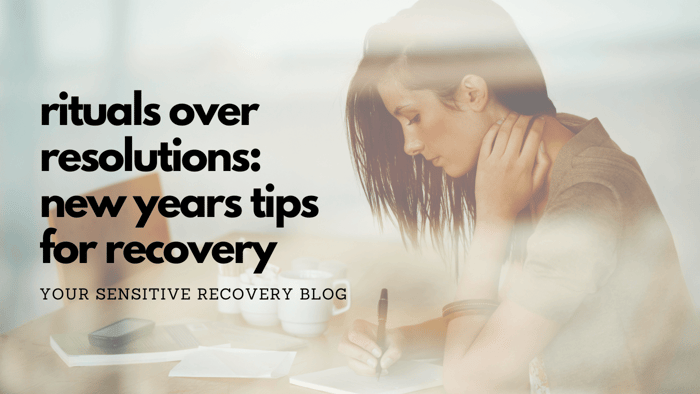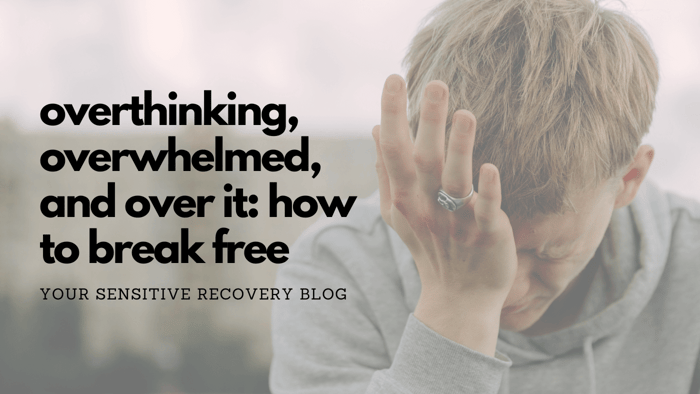I've always been sensitive to the experience of guilt. When I would upset my parents as a child (and this didn't happen often because, hello! Tried and true people pleaser here!), I would grab my crayons, draw a cute little picture with the words, "I'm sorry Mommy and Daddy" and slip it under my parent's bedroom door.
Sometimes these little apology doodles were 100% warranted, and the way I was feeling was an appropriate emotional response. That's right - it's ok to feel guilty. You see, feeling guilty can actually be helpful because it gently nudges our behavior back in line with our values and protects our connection to our loved ones. Thank goodness for this nudging, right?
However, there were definitely times when I would apologize for things like how someone else was feeling, or for expressing a different opinion. The type of situations that I had no business feeling bad about. This was a different kind of experience, and it stayed with me well into my adulthood, particularly intensifying during the years I battled anorexia. I'm talking about Toxic Guilt.
While I can't say that I'm completely rid of this kind of toxicity in my life today, I have learned one simple tool that works really well to combat it. Curious? Read on, my friend!
Is it helpful or toxic?
In last week's post, I mentioned how common it is for sensitive folks to feel guilty when they try to slow down and rest in a world that is constantly pushing us to do more.
As in the above example, toxic guilt often originates from unrealistic expectations (like perfectionism) or when we're being manipulated by another person or system of power.When left unchecked, it can turn into shame, which isn't so much about doing something "wrong/bad" but being "wrong/bad."
And of course, when we're dealing with a chronic, on-going sense of shame, self-esteem plummets, our ability to set and hold boundaries weakens, and we become more and more susceptible to the trappings of the unrealistic expectations and/or manipulations that fed shame in the first place. It's a terrible cycle.
Questions to Help You Identify If You're Experiencing Toxic Guilt:
- Is the word "should" dominating your thoughts about the situation? (YES)
- Are you trying to take responsibility for something that's out of your control? (YES)
- Has the issue already been resolved or have you already made amends? (YES)
- Will acting on the guilty feeling lead to positive growth or help repair a relationship? (NO)
- If your best friend were in your situation would it make sense for them to feel this way? (NO)
If your answers mostly match those in the parentheses, bad news - you're dealing with some uber-toxic sludge. But hey! There's good news too! You can start using the tool below to shift away from it. Go you! 🎉 🎉 🎉
From Guilty to Grateful
Ok, hear me out. I know some people immediately start to tune out when someone says the word gratitude, but I promise you, this tool is a game changer.
How To Do It: Once you notice that you've fallen into the toxic guilt trap, take a moment to acknowledge the ickiness of the experience using an "I feel"-statement. This helps to create a bit of separation between you and the emotion. Then, come up with at least one specific gratitude related to the experience. You can do it - it just might take a minute or two.
As with all cognitive tools, you don't need to stop the negative thought from popping up. (We often aren't capable of that.) Instead, focus your energy on recognizing the distorted thinking and challenging and/or replacing it once you do.This is what it looks like...
From: "I feel guilty resting when there's laundry to be done."
To: "I am grateful for this couch and the power to choose to sit here when I want."
From: "I feel guilty that my family is helping me pay for my treatment."
To: "I am grateful that my family is in a position to help me pay for my treatment."
From: "I feel guilty that I'm not looking forward to the holidays like everyone else."
To: "I am grateful for the people in my life who accept me even when I feel sad or anxious."
That's it! Simple right? Gratitude is a powerful emotion. Have you ever heard the saying, "Gratitude begets gratitude?" It essentially means that the more you practice being grateful, the more genuinely grateful you feel. Gratitude is a self-watering garden and an inhospitable environment for toxic guilt seeds.
So give this tool a try. At best, you start feeling better and experience compassion for yourself around the difficult experience. At worst, you identify some things for which to be grateful. You know I love a win-win!
Letting It Go
If you find you're feeling guilty way more than you like and that the emotion continues to resurface around the same type of experiences over and over, it's worth talking to a professional about it. You may be dealing with unresolved trauma and therapy can help you get at the root of the issue and find healing.
Learning to release the weight of past mistakes or the shackles of perfectionism is a transformative process. By focusing on appreciation for the moment, the support you’ve received, the progress you’ve made, or the insights now available to you, we can begin to shift those heavy, toxic feelings into something lighter and healthier. Gratitude doesn’t erase challenges, but it provides a new, constructive lens through which to view them, helping you move forward with greater compassion for yourself and others. 🥰
✨ Josie Munroe, LMFT is a licensed therapist and owner of JosieMunroe.com and Your Sensitive Recovery. As a recovered clinician and Highly Sensitive Person, she loves supporting others on their journeys to form new, empowered relationships with food, their bodies, and their sensitivity. Join the newsletter for a weekly boost of hope and inspiration. You deserve a recovery that works for you! ✨





